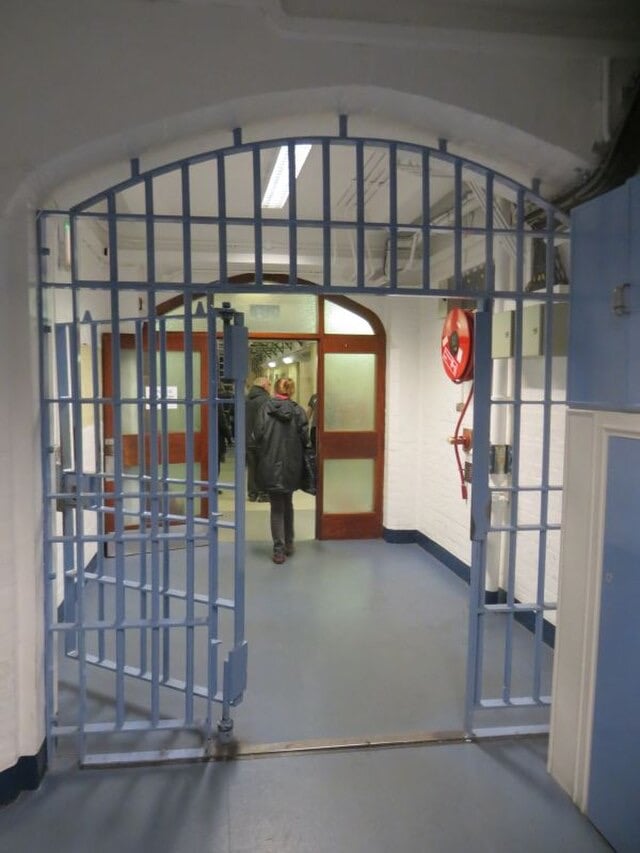Foreign criminals will face immediate deportation upon sentencing under sweeping new Government proposals aimed at freeing up prison space and saving taxpayers millions of pounds annually.
Justice Secretary Shabana Mahmood announced the radical plans today, which would see foreign national offenders deported straight after receiving custodial sentences rather than serving time in British prisons. The proposals represent a dramatic acceleration of existing deportation timelines as the Government grapples with a chronic shortage of prison places.
Under current rules being implemented in September, foreign prisoners can be deported after serving 30 per cent of their sentence, down from the previous 50 per cent threshold. The new proposals would reduce this to zero, allowing immediate deportation following sentencing.
This Government is taking radical action to deport foreign criminals, as part of our Plan for Change,” Ms Mahmood said. “Our message is clear: if you abuse our hospitality and break our laws, we will send you packing.”
Foreign offenders currently make up approximately 12 per cent of the prison population, with each prison place costing taxpayers an average of £54,000 per year. The Ministry of Justice confirmed that deported criminals would be permanently barred from re-entering the UK.
The Government claims it has already deported 5,200 foreign nationals since July 2024, representing a 14 per cent increase compared to the same period in the previous year. Officials say the new powers could save millions for British taxpayers whilst protecting public safety.
However, the proposals have sparked immediate controversy, with critics questioning whether destination countries would accept deportees and what happens if they refuse to imprison transferred criminals. The decision over whether deportees serve sentences abroad would rest with receiving countries, potentially allowing some criminals to walk free upon arrival.
Reform UK condemned the plans as insufficient, arguing that European human rights laws would continue to block deportations. A party spokesman said: “Until we leave the ECHR, which Labour will never do, the UK will never regain control over who we can and cannot deport.
The criticism comes as the Government unveiled plans in its Immigration White Paper to tighten the application of Article 8 of the European Convention on Human Rights, which protects the right to family life. The article has been frequently invoked by foreign criminals fighting deportation orders.
Shadow Justice Secretary Robert Jenrick warned that some countries may refuse to accept deportees, stating: “If countries won’t take back their nationals, Starmer should suspend visas and foreign aid. His soft-touch approach isn’t working.”
The new powers would apply to prisoners serving fixed-term “determinate” sentences, with authorities retaining discretion not to deport in specific cases, such as when offenders are planning further crimes against UK interests or national security. Those serving life sentences, including terrorists and murderers, would serve their full prison terms in the UK before deportation consideration.
Prison governors would make deportation decisions once judges hand down custodial sentences. If Parliament approves the legislation, the powers could apply retrospectively to the approximately 10,400 foreign nationals currently in the prison system.
The announcement comes amid a prison capacity crisis, with the prison population standing at 88,007, just 514 below the record high of 88,521 reached in September last year. A recent report suggested Labour must build 53,000 new prison spaces to meet demand and ensure proper punishment of criminals.
Ms Mahmood has accepted recommendations from the Gauke report for sweeping reforms, including some offenders serving less time in custody to ease pressure on prisons. The Government has pledged to create 14,000 new prison places by 2031.
The previous Conservative government’s approach relied on prison transfer agreements allowing inmates to serve sentences in home countries. Between 2010 and 2023, only 945 prisoners were transferred abroad, equivalent to fewer than 1.5 criminals per week.
Labour sources indicated the new legislation represents a fundamental shift from transfer agreements to immediate deportation, potentially beginning the process as soon as sentencing concludes.
A Government spokesman said the changes would be incorporated into broader Immigration reforms: “Our Immigration White Paper will end the addiction to cheap overseas labour that saw net migration explode to nearly one million in recent years.
The spokesman added: “The changes to enable the immediate deportation of foreign prisoners require primary legislation and will be brought before Parliament in due course.”
Human rights groups have expressed concern about the proposals, warning they could undermine international legal obligations and leave some individuals stateless or at risk of persecution in their home countries.
The legislation faces significant parliamentary scrutiny, with questions remaining about implementation timelines, appeal processes, and diplomatic agreements needed with receiving nations.
Follow for more updates on Britannia Daily
Image Credit (Shortened):
“Into the Prison” (Reading Prison) – by Bill Nicholls, licensed under CC BY‑SA 2.0, via Wikimedia Commons.



